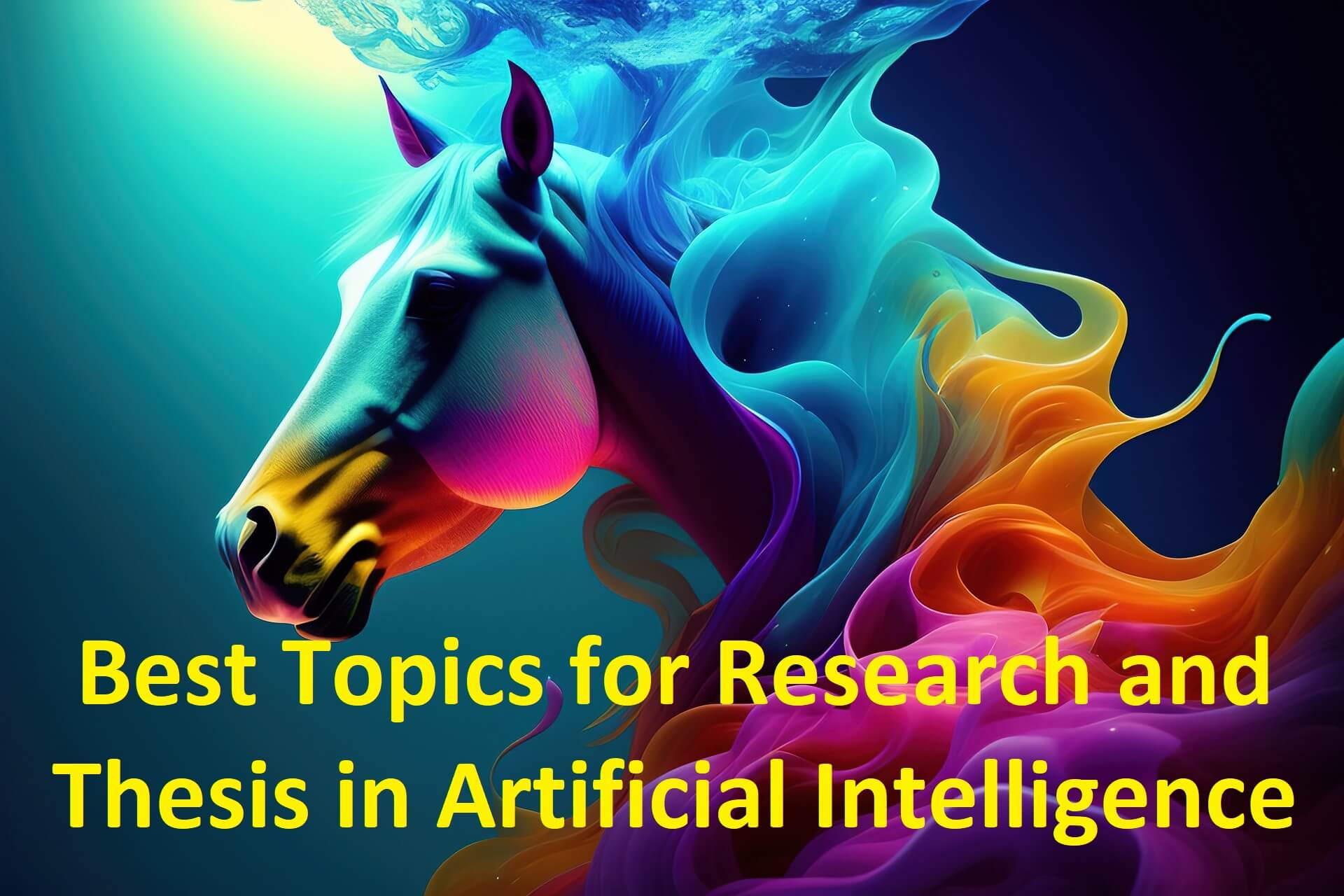Artificial Intelligence (AI) is a dynamic and rapidly evolving field, presenting countless opportunities for impactful research. If you’re a student or researcher seeking a compelling topic for your thesis or dissertation, AI offers a plethora of avenues to explore. This article delves into eight of the most promising topics in AI research, providing a comprehensive guide for your academic journey.
1. Machine Learning Algorithms
Machine learning (ML) stands as a cornerstone of AI, focusing on the development of algorithms that can learn from data and make informed predictions or decisions.
Importance
- Broad Applications: ML is integral to numerous industries, including finance, healthcare, and technology.
- Continuous Advancement: The field is marked by ongoing innovations aimed at enhancing algorithm efficiency and accuracy.
Research Directions
- Algorithm Optimization: Investigate techniques to enhance the speed and efficiency of existing algorithms.
- Novel Models: Explore the creation and application of new machine learning models.
2. Natural Language Processing (NLP)
NLP is dedicated to enabling computers to comprehend, interpret, and respond to human language in a meaningful way.
Importance
- Enhanced Interaction: NLP improves human-computer interactions, making technology more accessible.
- Data Insights: It allows for sophisticated analysis of large text corpora.
Research Directions
- Language Translation: Work on refining machine translation systems for better accuracy and fluency.
- Sentiment Analysis: Develop methods for machines to accurately detect and interpret human emotions in text.
3. Computer Vision
Computer vision focuses on enabling machines to interpret and make decisions based on visual data from the world.
Importance
- Automation: Crucial for applications such as autonomous vehicles and industrial automation.
- Security: Enhances surveillance and security systems through advanced image and video analysis.
Research Directions
- Image Recognition: Enhance the accuracy and speed of object identification.
- Medical Imaging: Innovate methods for early disease detection and diagnosis using image analysis.
4. Robotics
Robotics integrates AI with physical machines to perform a wide range of tasks autonomously or semi-autonomously.
Importance
- Labor Automation: Significantly reduces human labor in various industries.
- Healthcare Innovations: Assists in surgeries and patient care, improving healthcare outcomes.
Research Directions
- Autonomous Control Systems: Develop more sophisticated control systems for robotic autonomy.
- Human-Robot Interaction: Improve the ways in which robots interact and collaborate with humans.
5. Autonomous Vehicles
Autonomous vehicles, or self-driving cars, use AI to navigate and operate without human intervention.
Importance
- Safety Improvements: Potential to drastically reduce traffic accidents.
- Efficiency: Optimizes traffic flow and reduces environmental impact through efficient driving.
Research Directions
- Advanced Navigation Systems: Innovate on how autonomous vehicles perceive and react to their environment.
- Safety Mechanisms: Develop robust safety protocols to handle various driving conditions.
6. AI Ethics
AI ethics explores the moral and societal implications of AI technologies.
Importance
- Responsible Development: Ensures AI technologies are developed and used ethically.
- Policy Making: Informs regulations and guidelines for AI use.
Research Directions
- Bias Mitigation: Identify and reduce biases in AI systems to ensure fairness.
- Privacy Protection: Develop strategies to safeguard personal data in AI applications.
7. AI in Healthcare
AI is revolutionizing healthcare by enhancing diagnostic processes and personalizing patient care.
Importance
- Early Diagnosis: AI aids in the early detection of diseases, improving patient outcomes.
- Personalized Treatment: Tailors medical treatments to individual patient needs.
Research Directions
- Predictive Healthcare Analytics: Use AI to predict disease outbreaks and patient health trends.
- Medical Robotics: Advance the use of robots in surgical procedures and patient care.
8. AI and Cybersecurity
AI enhances cybersecurity by providing advanced methods for detecting and preventing cyber threats.
Importance
- Enhanced Security: Protects sensitive information from cyber attacks.
- Proactive Threat Detection: Identifies and mitigates threats faster than traditional methods.
Research Directions
- Intrusion Detection Systems: Develop AI-driven systems to detect and respond to cyber intrusions.
- Fraud Prevention: Improve algorithms to detect and prevent fraudulent activities.
Conclusion
Selecting a research topic in artificial intelligence can be daunting given the field’s vast and evolving nature. The eight topics highlighted above offer a robust foundation for impactful research, catering to diverse interests within AI. Whether your passion lies in machine learning, natural language processing, or AI ethics, there’s a rich vein of inquiry awaiting your exploration.
FAQs
What is the best topic for AI research? The best topic varies based on personal interests and emerging trends in AI. Popular areas include machine learning, NLP, and computer vision.
How do I choose a research topic in AI? Identify what fascinates you most about AI and review recent literature to find gaps in current research. Consult with advisors and mentors for guidance.
Is AI research difficult? AI research can be challenging due to its technical depth and rapid advancements, but it is also highly rewarding and impactful.
Do I need programming skills for AI research? Yes, programming skills are essential for implementing and testing AI models. Languages like Python are widely used in AI research.
Can AI research lead to a good career? Absolutely! AI is a rapidly growing field with numerous career opportunities in academia, industry, and beyo

